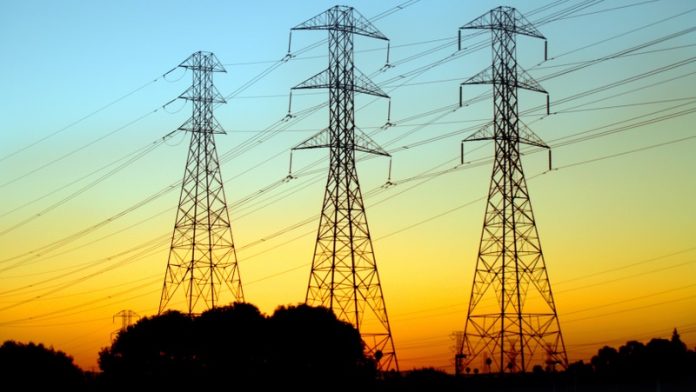After more than a decade of reforms and continuous repositioning of Nigeria’s electricity sector
to attract private investments, the outlook remains positive and bullish but not much traction has
been gained and while it appears that investors are seeking footholds in the sector, efforts must
be intensified by stakeholders to accelerate and accommodate these new potential investments.
As Nigeria strides forward to consolidate its pride of place as Africa’s economic powerhouse,
configuring its power supply architecture for optimum performance remains critical to realizing
the lofty goal of an economic resurgence.
Nigeria’s electricity sector presents a significant untapped investment potential, given the
country’s vast energy needs and the current supply deficit. While estimating the precise
investment potential is challenging due to various factors, several reports and analyses provide
insights into the magnitude of opportunities available.
Power generation investment potential According to the Nigerian Electricity Regulatory
Commission (NERC), the country requires an estimated investment of $3.5 billion yearly over
the next 20 years to achieve its desired power generation capacity. This translates to a potential
investment of $70 billion in the generation segment alone.
The International Energy Agency (IEA) estimates that Nigeria needs to invest approximately $10
billion in its transmission and distribution networks to improve the reliability and efficiency of the
electricity supply chain. Nigeria’s renewable energy potential, particularly in solar and
hydropower, remains largely untapped.
The Rural Electrification Agency (REA) estimates that the country’s solar potential alone is
around 25,000 megawatts (MW), requiring an investment of $23 billion to harness this potential
fully.
The Nigerian Electrification Project (NEP), supported by the World Bank, also aims to attract
$350 million in investments for off-grid and mini-grid solutions, targeting the electrification of
underserved communities and remote areas. However, while the allure of renewable energy
solutions is undeniable, the existing infrastructure needs more immediate attention, and
optimizing it offers a pragmatic and potentially more immediate pathway to improving the overall
efficiency and reliability of the electricity sector.
According to the African Development Bank (AfDB), Nigeria’s overall power sector requires an
estimated investment of $100 billion over the next decade to address the current supply deficit
and meet the country’s growing energy demands. While these estimates may vary based on
different assumptions, scenarios, and timelines.
However, even with conservative estimates, the untapped investment potential in Nigeria’s
electricity sector remains substantial, ranging from tens to hundreds of billions of dollars across
various segments of the value chain.
For serious and ready investors looking to tap into the Nigerian electricity sector, there are
several “low-hanging fruits” or relatively low-risk, high-potential opportunities that can be
explored. Beyond the core generation, transmission, and distribution activities, several ancillary
services also offer investment opportunities.
With the persistent power supply challenges faced by industries and commercial
establishments, there is a significant demand for embedded generation solutions.
Investors can establish captive power plants or independent power projects (IPPs) specifically
designed to cater to the energy needs of industrial clusters, estates, or large commercial
complexes. This approach mitigates transmission and distribution risks while providing a
dedicated and reliable power supply to customers.
The recently commissioned Geometric Power Plant in Aba, Abia State, serves as a compelling
case study on how effective investment in power generation and distribution can buoy
manufacturing and industrial hubs across Nigeria.
Aba, once the thriving commercial hub of south-eastern Nigeria, had suffered from a prolonged
power crisis that crippled its once-vibrant industrial sector. However, the recent commissioning
of the $142 million Geometric Power Plant, a 141MW integrated power project, has ushered in a
new era of hope and economic revival for the city.
The Geometric Power Plant, a collaborative effort between the Abia State Government and
private investors, has provided a reliable and cost-effective power supply to the Aba industrial
cluster. This has had a profound impact on the region’s manufacturing sector, addressing one of
the critical bottlenecks that had stifled its growth for decades.
The Nigerian Electricity Regulatory Commission (NERC) has also introduced a distribution
franchising model that allows private investors to operate and manage specific distribution areas
within the existing Distribution Companies’ (DisCos) networks.
This model presents an opportunity for investors to focus on improving service delivery,
reducing losses, and enhancing revenue collection in targeted areas, potentially leading to
better returns on investment. Promoting energy efficiency and demand-side management can
help reduce the strain on Nigeria’s electricity supply chain.
Investors can partner with utilities or technology providers to implement energy efficiency
programs, deploy energy-efficient technologies, or offer demand response services to industrial
and commercial customers. These projects can generate revenue streams while contributing to
the overall sustainability of the electricity sector.
The integration of smart grid technologies, such as advanced metering infrastructure (AMI), grid
automation, and outage management systems, can significantly improve the efficiency and
reliability of the electricity supply chain.
Investors can partner with utilities or technology providers to deploy these solutions, leveraging
the growing demand for modernization and digitalization in the sector. In remote areas or
underserved communities where grid extension is challenging, investors can explore the
development of mini-grid systems or off-grid solutions powered by renewable energy sources.
These projects not only provide access to electricity but also contribute to rural electrification
and economic development. To capitalize on these investment opportunities, investors must
carefully assess the regulatory environment, market dynamics, and risk factors associated with
each value chain.
Partnering with experienced local firms, engaging with relevant stakeholders, and leveraging
available government incentives and development finance can further enhance the viability and
success of investments in Nigeria’s electricity sector.
In 2013, the Nigerian government embarked on a comprehensive privatization program,
unbundling the state-owned Power Holding Company of Nigeria (PHCN) and selling majority
stakes in generation and distribution companies to private investors. This move aimed to
introduce competition, improve efficiency, and attract much-needed capital into the sector.
However, key attention has to be paid to the plethora of challenges and opportunities that
continues to define this critical sector, such as revamping an underwhelmed infrastructure and
retooling power generating and delivery vehicles with 21st century technology and management
efficiency.
On the government’s side, removing bureaucratic bottlenecks and stabilizing the Naira to
safeguard investments, need to be prioritized to boost investor confidence. The Nigerian Bulk
Electricity Trading Plc (NBET) continues to play a critical role in the Nigerian electricity sector
ecosystem, and its functions directly benefit investors in several ways.
As an offtaker and bulk purchaser, the NBET acts as the offtaker and bulk purchaser of
electricity from generation companies (GenCos) in Nigeria. It enters into Power Purchase
Agreements (PPAs) with GenCos and buys their generated electricity in bulk, which it then
resells to distribution companies (DisCos) through vesting contracts.
Another primary role of NBET is to provide creditworthiness and payment assurance to GenCos
and independent power producers (IPPs). NBET’s strong financial backing, guarantees, and
government support help mitigate the risk of non-payment or default, which is crucial for
attracting investments in power generation projects.
NBET also facilitates the negotiation and execution of Power Purchase Agreements (PPAs)
between GenCos/IPPs and DisCos. These long-term PPAs provide revenue certainty and
predictability for investors, enabling them to secure financing and ensure the viability of their
power generation projects.
NBET also helps mitigate risks associated with the electricity market by acting as a buffer
between GenCos and DisCos. It manages the payment and settlement processes, reducing the
exposure of GenCos to the credit risk of individual DisCos and ensuring timely payments for
electricity supplied.
By consolidating and managing the bulk purchase and resale of electricity, NBET helps stabilize
the Nigerian electricity market. This stability and predictability create a more attractive
environment for investors, as it reduces market volatility and uncertainty.
Overall, NBET’s role as a central counterparty in the Nigerian electricity market helps mitigate
risks, provide payment assurances, facilitate project financing, and promote investments in
energy generation projects. Its functions directly address some of the key challenges and
concerns faced by investors in the sector, making it an essential component of the ecosystem.
Indeed, the federal government has established a robust Public-Private Partnership (PPP)
framework to facilitate private sector participation in the development of power infrastructure.
This includes the establishment of the Infrastructure Concession Regulatory Commission
(ICRC) and the National Integrated Infrastructure Master Plan (NIIMP).
The Nigerian Electricity Regulatory Commission (NERC) has also implemented various reforms
to improve the regulatory framework and attract investments. These include the introduction of
cost-reflective tariffs, the development of a Transmission Expansion Plan, and the establishment
of guidelines for independent power projects (IPPs) and embedded generation.
Despite being a major oil and gas producer, Nigeria’s electricity supply has consistently lagged
behind demand, with a current installed capacity of 12,522MW but an available capacity of just
3,876MW as of Q3 2022.
This supply deficit, coupled with an aging infrastructure and inefficiencies in the transmission
and distribution networks, has resulted in frequent power outages and a reliance on expensive
off-grid solutions.
The current state of Nigeria’s electricity sector presents a complex challenge, but within this
challenge lies a transformative opportunity. While inadequate and unreliable power supply
hinders the nation’s progress, it also unveils a compelling investment frontier brimming with
untapped potential. The statistics speak volumes.
The Manufacturers Association of Nigeria (MAN) reports that the nation’s industrial capacity
stands at a mere 50%, far below its true potential. This underutilization stems primarily from the
unreliable power supply, forcing many industries to rely on expensive and inefficient
self-generation methods.
MAN further estimates that the manufacturing sector alone requires 10,000 MW to operate at
full capacity, a demand that will only grow with intensifying industrialization efforts. However,
these challenges are not insurmountable.
They paint a clear picture: Nigeria craves a robust and efficient electricity sector. This hunger for
reliable power presents a lucrative opportunity for strategic investors seeking long-term returns
and positive societal impact.
As Africa’s largest economy and most populous nation, Nigeria’s energy needs are vast and
growing, creating a conducive environment for investors who are not only driven by profit but
also passionate about supporting the nation’s sustainable and equitable development.












